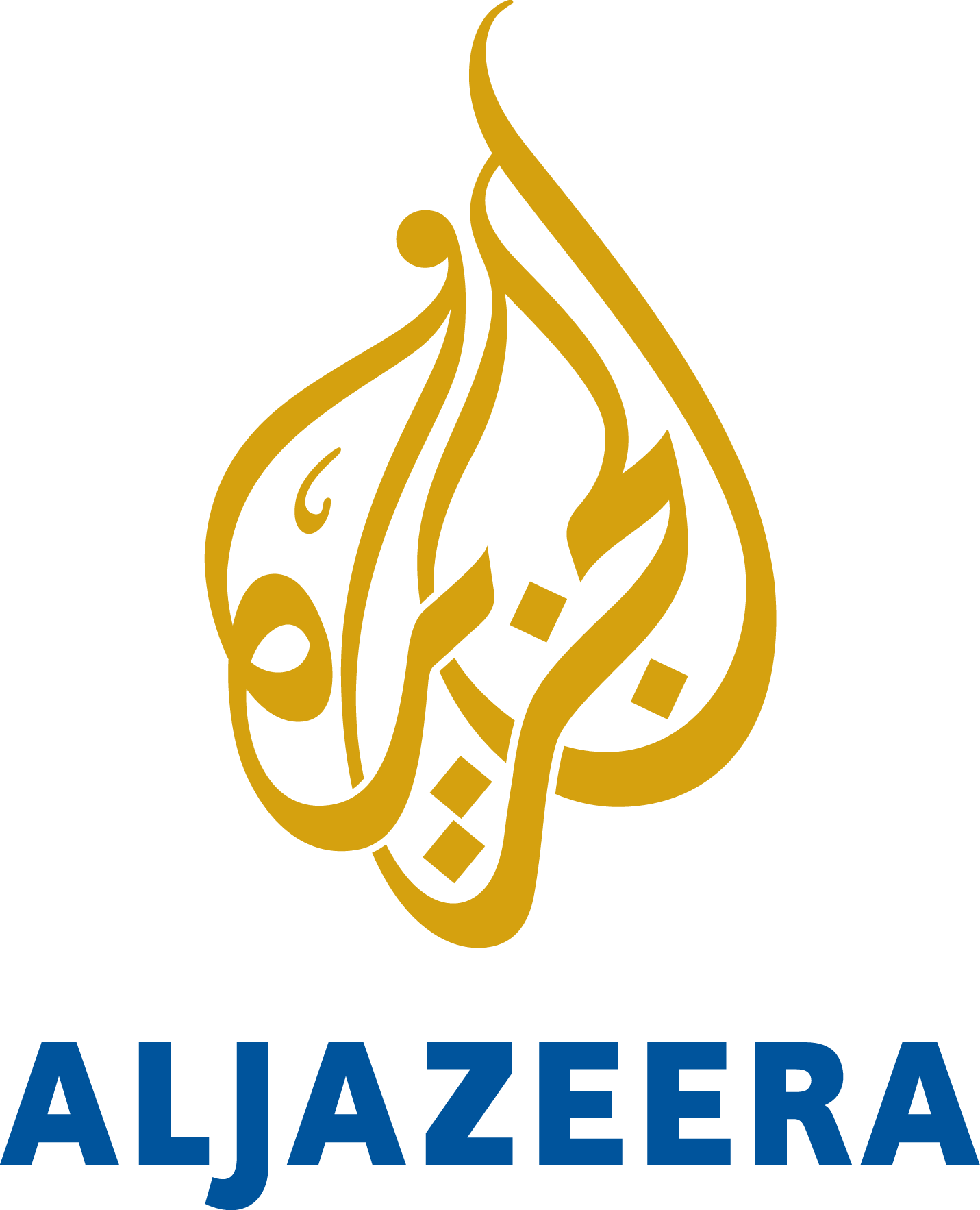al-Qaeda's preferred beverage outlet
The following review of Rudy Giuliani's foreign policy outline was published on The Intellectual Conservative, a webzine featuring excellent commentary on domestic and international issues, with a slant toward paleoconservative and libertarian ideas.
------------------
One day during the summer of 2002, during a 3-month internship in the UAE between the 2 years of my MBA studies at the London Business School, I was strolling through Dubai City Centre (one of the city's many air-conditioned mega-malls) when I saw a teenager, apparently of local origin judging by the way his garments were configured, walking around the mall wearing a t-shirt bearing the likeness of Osama bin Laden.
One might imagine, given the young man's taste in sportswear, that such an individual bore great resentment toward the United States and "the West" in general. Yet, he unceremoniously sipped from a medium-size beverage cup bearing the logo of McDonald's.
This incident came immediately to mind after reading Norman Podhoretz's...rather, Rudy Giuliani's foreign policy outline submitted to Foreign Affairs magazine. (See also the outlines of Mitt Romney and Barack Obama, as well as John Edwards.) For those unfamiliar with Rudy Giuliani, he is the greatest hero in American history, and if he emerges with the Republican nomination, he is expected to win the 2008 Presidential election in my home state of New Jersey with 103.5% of the vote.
Giuliani's article was rife with contradictions, predicated upon a faulty framework for evaluating terrorism. Quite simply, he and all the other neocon Kool Aid drinkers have not understood that the struggle for order and stability, or the "international system" as Giuliani calls it, is a choice between states and statelessness. The neocons haven't yet grasped this – they may claim otherwise, but they still cling to their Cold War framework of good states vs. bad states.
Before expounding upon that, consider the passage of Giuliani's piece that sparked the memory of my Dubai experience, among the most ridiculous of his propositions:
"Jordan, Kuwait, Qatar, and the United Arab Emirates are pointing the way by tarting to interpret Islam in ways that respect the distinctiveness of their local cultures but are consistent with the global marketplace. Some of these states have coeducational schools, allow women to serve in government, and count shopping malls that sell Western and Arab goods side by side. Their leaders recognize that modernization is their ticket to the global marketplace. And the global marketplace can build bridges between the West and the Islamic world in a way that promotes mutual respect and mutual benefit."
For a man who boasts that he has visited 35 countries since leaving the mayoralty of New York, he doesn't seem to have learned a whole lot, expect perhaps that sycophants can make a person feel smarter than what he is.
Giuliani's statement is so misinformed, it's hard to choose where to begin debunking it. First of all, the countries that he mentioned are not really in the business of "interpreting Islam," other than to recognize very general components of Islamic culture, such as respecting Friday as a day of communal prayer and structuring national schedules accordingly (like Israel does for Saturday and the US does for Sunday). Giuliani seems to think that the austerity and government-enforced Islamic social guidelines mandated by the Saudi regime or the Taliban are the norm, while in fact they are the exception. What percentage of Islamic countries do not have co-educational schools, allow women to serve in government, or sell "Western and Arab goods side by side?" (How patronizing...) A very small minority. Even Iraq under the Baath Party and Saddam Hussein always had women in prominent roles. And the government of Syria brews its own beer.
The main trait that Jordan, Kuwait, Qatar, and the UAE have in common is that they are all allied with the US politically/militarily/economically. Accordingly, Jordan's "King" Abdallah earns accolades as a "reformer," I suppose because Coach handbags are sold duty-free at the border crossing between Jordan and Iraq. What, pray tell, was the margin of victory the last time he was elected "king?"
Of course, all of these misconceptions are related to the neoconservatives' obsession with "democracy," which they have turned into the cheapest word in the English language, roughly defined as:
"absolute compliance with and slavish obedience to whatever our regional agenda happens to be for the next 15 minutes."
Further arrogance in Giuliani's view manifests in his suggestion that modernization can only come from a strong relationship with the United States. I don't know what Giuliani saw in those 35 countries he visited, but in the 28 I have passed through I have seen that plenty of nations are getting along just fine with modernization and globalization without much American influence at all. Take Africa for instance, where Chinese products and industries dominate the market, and American goods have only gained a foothold in specific sectors (comme les 4×4 de luxe).
As for the Middle East, Giuliani has it wrong there too. Modernization and globalization do not at all go hand-in-hand with approval of the political/military plans of the United States. I suppose it never occurred to Giuliani that a young Muslim's ability to enjoy a shake from McDonald's subtracts nothing from his admiration and hero-worship of an evil man whose claim to infamy is his commitment to the taking of innocent American lives, as my Dubai experience illustrated. Quite the contrary, when Giuliani says:
"Companies such as Pepsi, Coca-Cola, McDonald's, and Levi's helped win the Cold War by entering the Soviet market. Cultural events, such as Van Cliburn's concerts in the Soviet Union...also hastened change..."
...he displays no understanding of the crisis of America's image in the minds of young Arabs and Muslims, and relies upon outdated clichés to support his view. The fact that stars like Enrique Iglesias perform to rave reviews in Damascus or that Facebook is full of groups like "Bring the Red Hot Chili Peppers to Syria" does little to change America's damaged regional image in the minds of Arab and Muslim youth.
That is on the individual level. On the state level, America's regional foes, Syria and Iran, have pressed on with globalization and seen massive inflows of capital from the Gulf states in real estate, technology, tourism, and manufacturing sectors, despite being sanctioned by the US. Additionally, Iran has inked a multi-year $100 Billion oil deal with China. Of course, modernization would progress more rapidly with American influence, and this is a worthy goal of the United States' trade policy, but globalization (as its name suggests) is not wholly controlled by America.
Iran is a good example to use because Giuliani’s animosity towards it suggests that it is outside the "international system" he wishes to strengthen as one of the three pillars of his foreign policy. But the framework of that very policy actually places Iran inside the system. For starters, Giuliani defines our enemies as those who:
"follow a violent ideology: radical Islamic fascism, which uses the mask of religion to further totalitarian goals and aims to destroy the existing international system. These enemies wear no uniform. They have no traditional military assets. They rule no states but can hide and operate in virtually any of them and are supported by some."
He continues:
"Our old assumptions about conflict between nation-states fell away. Civilization itself, and the international system, had come under attack by a ruthless and radical Islamist enemy...[the challenge] will be to strengthen the international system that the terrorists seek to destroy."
This seems to suggest that the international system consists of stable states, which terrorists wish to undermine, and that radical Islamists are the enemy. It's a sensible and logical argument, except that it contradicts Giuliani's actual agenda in what he calls the "Terrorists' War on Us" (formerly known as the "War on Terror").
Of Iran, Giuliani says:
"The Islamic Republic has been determined to attack the international system throughout its entire existence: it took U.S. diplomats hostage in 1979 and seized British sailors in 2007 and during the decades in between supported terrorism and murder."
Does he deny that Iran is a state? How could Iran have closed a major oil deal with China if it was not part of the international system? What about regular arrivals and departures of commercial flights run by Alitalia, Air France, and BMED (British Airways/BMI)? In fact, following the capture of British sailors earlier this year, the former prisoners flew home aboard one of these flights, which are usually dominated by civilian businessmen and tourists.
According to Giuliani, the case against Iran consists of 2 incidents separated by 28 years and broad references to "terrorism and murder" in between. True, Iranian leaders have made troubling, anti-American statements repeatedly and the United States has every reason to be concerned about Iranian access to nuclear technology. But bellicose statements do not alone remove a nation from the "international system;" rather, uncooperative nations must be dealt with through the tools of that system, be they diplomatic, political, economic, or yes, military in cases where America's sovereignty is directly threatened.
Nearly every other nation, including staunch American allies, retains diplomatic relations with Iran. And America too should consider re-evaluating the diplomatic freeze that has lasted nearly 3 decades. In addition to a mere consular presence that could facilitate people-to-people cultural exchanges, a full-blown embassy would enable espionage and the gathering of more reliable information than we tend to obtain from unsavory exiles, as Ted Galen Carpenter has argued.
Giuliani relies on more regional clichés when he states:
"The theocrats ruling Iran need to understand that we can wield the stick as well as the carrot, by undermining popular support for their regime, damaging the Iranian economy, weakening Iran's military, and, should all else fail, destroying its nuclear infrastructure."
It is unclear how he proposes to undermine popular support for the Iranian regime, and what he means by the "regime." Does he refer to the clerics and Supreme Leader Ayatollah Ali Khamanei, Assembly of Experts leader Hashemi Rafsanjani, or President Mahmoud Ahmadinejad? What about the elected parliament? Iranian politics are far more complex than Giuliani seems to grasp, and for all of its flaws (such as the clerics' ability to reject insufficiently "Islamic" candidates for the parliament), it is a Republic and it is a state. Accordingly, Giuliani is quite correct when he says:
"There is no realistic alternative to the sovereign state system. Transnational terrorists and other rogue actors have difficulty operating where the state system is strong, and they flourish where it is weak. This is the reason they try to exploit its weaknesses."
This is exactly why we must learn to negotiate with states like Iran, however wide and long-standing the gaps, to cooperate to defeat terrorist organizations; for example, the intelligence sharing on al-Qaeda that developed between the US and Iran immediately following 9/11. Their intelligence services are far more accomplished and regionally connected than ours, which is why we must seek out ways to enlist their help in crushing disruptive terrorist organizations that can harm energy supplies and disrupt regional or even global economies.
Giuliani speaks of the "international state system" as "the primary defense of civilization," and says that:
"America can no longer rely on Cold War doctrines such as 'mutual assured destruction' in the face of threats from hostile, unstable regimes."
While no one would deny that Iran has expressed hostile intentions in the past, to suggest that states not allied with the United States are not part of civilization eclipses the current US President at even his most arrogant. As for "mutual assured destruction," one would hope, after seeing the Presidents of Iran and Israel shake hands and engage in pleasantries at the funeral of Pope John Paul II, that perhaps cooler heads will prevail over the anti-Israel rhetoric that tends to flow from Mr. Ahmadinejad's tongue.
But Giuliani rejects such "diplomatic accommodation with hostile states" as one of the vices of the "realist" foreign policy school of thought, which "avoids attempts to reform the international system according to our values." Along those lines, Giuliani voices support for the Bush policy of intervening to promote democracy and human rights in other nations (though he wisely backs off the establishment of elections as a sole criteria for "democracy") and goes so far as to say:
"Preserving and extending American ideals must remain the goal of all U.S. policy, foreign and domestic."
Thus, he proposes offering NATO membership to US allies around the global, expanding the organization well beyond its current geography and transforming it into a mini-UN without dissenters.
Judging by these statements, the source of Giuliani's positions seems to be the stubborn worldview of his advisors, even if it flies in the face of the US Constitution and the finest traditions of American foreign policy. The tone of his diplomatic approach is clearly set when he says:
"The task of a president is not merely to set priorities but to ensure that they are pursued across the government...Members of Congress who talk directly to rogue regimes at cross-purposes with the White House are not practicing diplomacy; they are undermining it."
What, then, of fact-finding missions by members of Congress who may wish to evaluate claims made against these "rogue regimes" before making decisions on the need for authorizing force or (imagine this) declaring war according to Article I, Section 8?
Quite simply, the foreign policy of a Rudy Giuliani presidency would further jeopardize American sovereignty in an unrealistic attempt to project American values on the rest of the world's nations. The threat of terrorism to the "international system" to which Giuliani is so keenly attached must certainly be confronted, but not in a manner that would forsake the advice given by George Washington in his farewell address:
"Observe good faith and justice towards all nations; cultivate peace and harmony with all...In the execution of such a plan, nothing is more essential than that permanent, inveterate antipathies against particular nations, and passionate attachments for others, should be excluded; and that, in place of them, just and amicable feelings towards all should be cultivated...Harmony, liberal intercourse with all nations, are recommended by policy, humanity, and interest."
George Ajjan is a Republican activist from Clifton, NJ who runs the blog "The Aleppine Elephant." He is also the creator of REDchoice, an issue-based online poll for the 2008 Presidential Republican Primary that utilizes conjoint analysis to identify voter preferences.
o --- This article first appeared on The Intellectual Conservative on September 12, 2007.
















